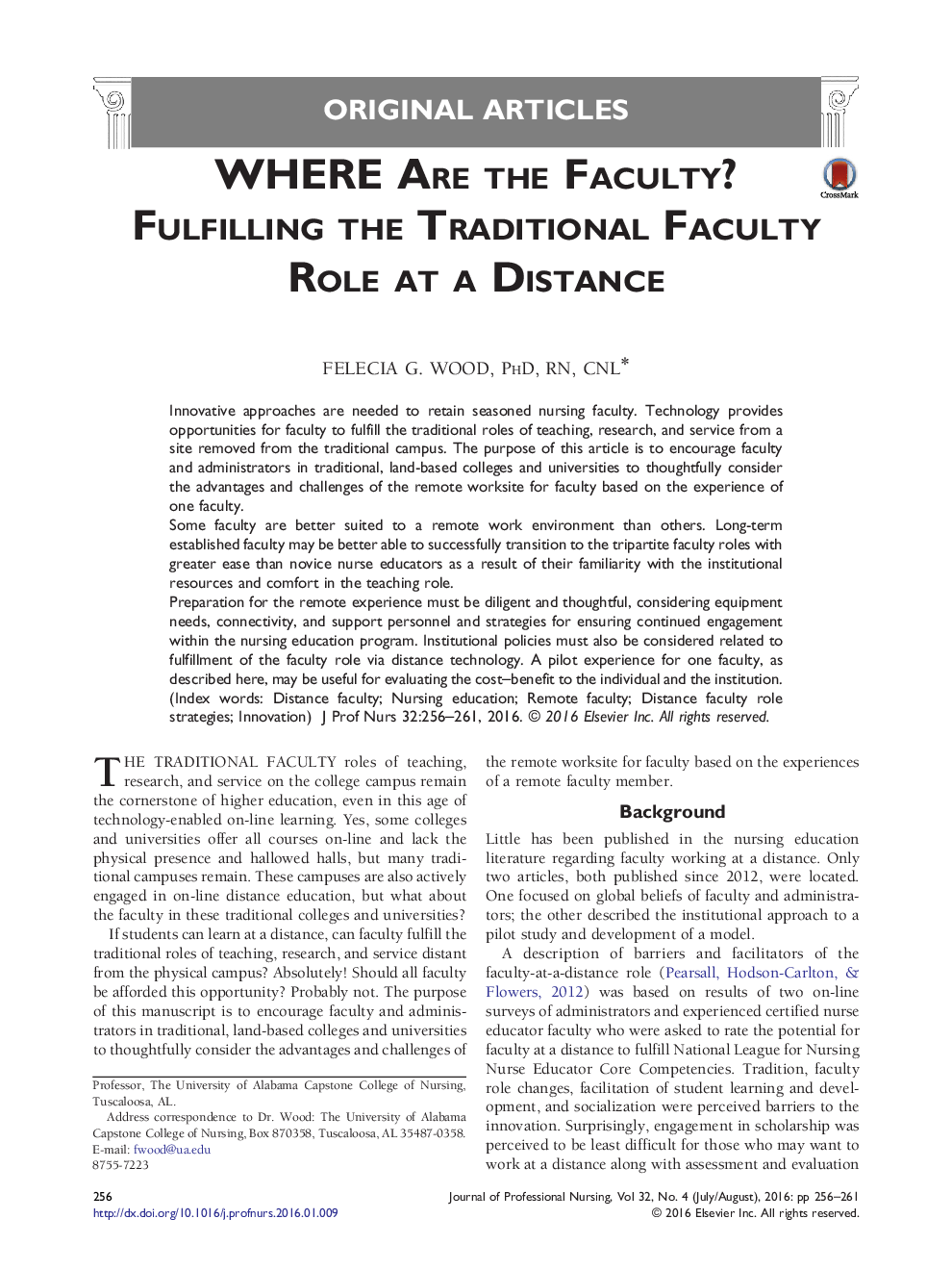| Article ID | Journal | Published Year | Pages | File Type |
|---|---|---|---|---|
| 2668061 | Journal of Professional Nursing | 2016 | 6 Pages |
•The impending faculty shortage requires innovation to retain experienced educators.•Traditional nursing faculty may benefit from the option of teaching remotely.•Nursing education administrators must thoughtfully consider requests for remote work.•Decisions to permit remote work affect the individual, the program, and the institution.
Innovative approaches are needed to retain seasoned nursing faculty. Technology provides opportunities for faculty to fulfill the traditional roles of teaching, research, and service from a site removed from the traditional campus. The purpose of this article is to encourage faculty and administrators in traditional, land-based colleges and universities to thoughtfully consider the advantages and challenges of the remote worksite for faculty based on the experience of one faculty.Some faculty are better suited to a remote work environment than others. Long-term established faculty may be better able to successfully transition to the tripartite faculty roles with greater ease than novice nurse educators as a result of their familiarity with the institutional resources and comfort in the teaching role.Preparation for the remote experience must be diligent and thoughtful, considering equipment needs, connectivity, and support personnel and strategies for ensuring continued engagement within the nursing education program. Institutional policies must also be considered related to fulfillment of the faculty role via distance technology. A pilot experience for one faculty, as described here, may be useful for evaluating the cost–benefit to the individual and the institution.
